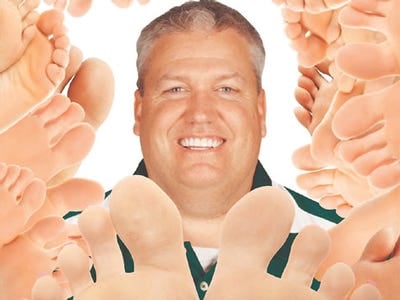Yep. I can't possibly imagine not passing the Forefoot oral examination. Once again, it is testing minimum competency and the questions, although challenging, are nothing that you shouldn't know at that point in your career.
The above is a quote from Kidsfeet, and includes a major pet peeve of mine. There IS NO such thing as a "FOREFOOT" oral exam or written exam. Sorry, does not exist. And how did you determine that it is testing "minimum competency"???????? Sorry, don't agree. The exam is not created to test "minimum competency", since I don't believe the board is designed around mediocrity.
There is certification in foot surgery. However, the last time I looked the "foot" included the forefoot, midfoot and rearfoot. As someone who was an examiner for the oral portion of the ABPS exam, and when I examined candidates, there were questions pertaining to the entire foot.
I also find it slightly pompous to state that you can't possibly imagine not passing the oral exam for foot surgery. There are a lot of factors involved, including candidate nerves, health status that day, mood of the examiner. I witnessed some bright candidates not pass the oral exam. Some try to make it too complicated, some over-think the question, some believe we were looking for some esoteric information, etc. So, I think saying you can't "possibly" imagine not passing seems just a little strong.


